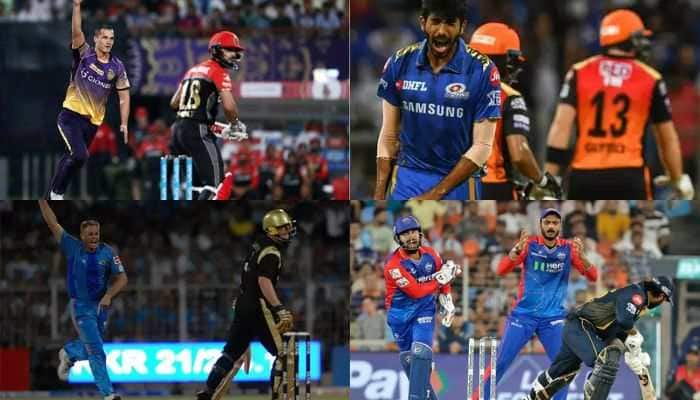`Maldives crisis means trouble for India`
An uneasy calm prevails on the streets of Male after a week of protests and clashes.
Trending Photos
)
 Maldives is in the news. The land of deep blue sea and white sand beaches is catching the world’s attention because of political chaos in the country. An uneasy calm prevails on the streets of the Maldivian capital, Male, after a week of protests and clashes, and of course the ouster of President Mohamed Nasheed.
Nasheed insists he was deposed at gunpoint in a coup. He has called for early polls, but the new President has rejected his demand. Maldives` first democratically-elected leader has defied an arrest warrant and vowed to take the fight to the Supreme Court. The future of the Indian Ocean island nation appears to be cloudy.
Tensions are high in Indian political circles as well because hard-line Islam also played a role in overthrowing the government in Maldives. India just cannot afford an instable Maldives.
In an exclusive interview with Kamna Arora of Zeenews.com, Dr Anand Kumar, an expert on South Asia, discusses the ongoing political chaos in Maldives and the role of India in the whole scenario.
Dr Anand Kumar is Associate Fellow at Institute for Defence Studies and Analyses, New Delhi.
Kamna: The chain of events in Maldives this week was murky. Did Mohamed Nasheed resign voluntarily or was he pushed out from power at gunpoint? What are the reports that you are getting?
Dr Kumar: It is not clear whether Nasheed resigned at gunpoint. But what is clear is that Nasheed resigned at the point when there was no option left other than bloodbath.
The protests against his regime engineered by the opposition and the Islamists have been going on for quite some time. Some of the policies of the Nasheed government were reversed under the pressure of Islamists. But the protest against the government turned into a clash between the executive and the judiciary when Nasheed ordered the military to arrest the top criminal court judge in his country. This alienated some of the supporters of his regime. It also started a rebellion in police, subsequently joined by small number of Army men. It is possible that some of these people could have been supporters of Maumoon Abdul Gayoom. When police captured the office of MDP (Nasheed’s Party) and radio station and started declaring support in favour of Gayoom, the only way left for Nasheed was to ask military to fire on these people. This option could have led to bloodbath and a grave situation in Maldives. At this point, Nasheed chose to resign.
Kamna: Can the ongoing political chaos in Maldives pave the way for a resurgent Islamist movement?
Dr Kumar: A resurgent Islamist movement has been going on in Maldives. In fact, the Islamists gathered strength with the coming of multi-party democracy. Though Nasheed’s government was secular, the prevailing democracy in the country provided a lot of space to the Islamists. The Islamists used this to their advantage. This situation is likely to continue in the near future.
Kamna: Can the Maldives crisis spell trouble for India too?
Dr Kumar: The Maldives crisis definitely means trouble for India. Though Maldives is a small country, it is strategically located. It is situated in the Indian Ocean at a location where major sea lanes of communication pass through. Powers inimical to Indian security interests have been trying to get a foothold here. The prevailing chaos in the country might provide them with the opportunity they were looking for. India has invested a lot of political and economic capital in Maldives. All this would be at stake if anarchy continues there.
Kamna: The United States has backtracked from its swift recognition of the new Maldives government. Do you think India should have waited to get the clear picture on the post-coup situation before announcing its support to new Maldivian President Mohamed Waheed?
Dr Kumar: Definitely, India should have waited for some time. It should have taken a decision on this only after a clear picture had emerged. But now since we have already extended our support to the new regime, it would not be prudent to backtrack. Now Indian diplomacy should be geared to see that the multi-party democracy survives in the country.
Kamna: How do you find India’s response to the whole crisis in the Indian Ocean nation? Reports claim that New Delhi has offered asylum to Nasheed.
Dr Kumar: India’s response to the whole crisis has been reasonable. The political crisis has been brewing up in that country for quite some time. Nasheed is an honest man. Unfortunately, he is not a very astute politician. He allowed the Parliament to be controlled by the opposition. Since then he has been facing political difficulties. It was his mishandling of the situation that precipitated the crisis. As far as offering political asylum to Nasheed is concerned, there should not be any problem. In any case, a large number of Maldivians stay in the Indian states of Kerala and Karnataka.
Kamna: Do you see the Maldivian logjam being broken anytime soon? If not, Maldives is heading towards which situation?
Dr Kumar: The Maldives logjam could be broken if President Waheed forms a national government quickly as promised. But if he delays this or tries to play politics, then the situation could worsen. In that case, it is possible that Maldives might see a phase of political unrest.
Maldives is in the news. The land of deep blue sea and white sand beaches is catching the world’s attention because of political chaos in the country. An uneasy calm prevails on the streets of the Maldivian capital, Male, after a week of protests and clashes, and of course the ouster of President Mohamed Nasheed.
Nasheed insists he was deposed at gunpoint in a coup. He has called for early polls, but the new President has rejected his demand. Maldives` first democratically-elected leader has defied an arrest warrant and vowed to take the fight to the Supreme Court. The future of the Indian Ocean island nation appears to be cloudy.
Tensions are high in Indian political circles as well because hard-line Islam also played a role in overthrowing the government in Maldives. India just cannot afford an instable Maldives.
In an exclusive interview with Kamna Arora of Zeenews.com, Dr Anand Kumar, an expert on South Asia, discusses the ongoing political chaos in Maldives and the role of India in the whole scenario.
Dr Anand Kumar is Associate Fellow at Institute for Defence Studies and Analyses, New Delhi.
Kamna: The chain of events in Maldives this week was murky. Did Mohamed Nasheed resign voluntarily or was he pushed out from power at gunpoint? What are the reports that you are getting?
Dr Kumar: It is not clear whether Nasheed resigned at gunpoint. But what is clear is that Nasheed resigned at the point when there was no option left other than bloodbath.
The protests against his regime engineered by the opposition and the Islamists have been going on for quite some time. Some of the policies of the Nasheed government were reversed under the pressure of Islamists. But the protest against the government turned into a clash between the executive and the judiciary when Nasheed ordered the military to arrest the top criminal court judge in his country. This alienated some of the supporters of his regime. It also started a rebellion in police, subsequently joined by small number of Army men. It is possible that some of these people could have been supporters of Maumoon Abdul Gayoom. When police captured the office of MDP (Nasheed’s Party) and radio station and started declaring support in favour of Gayoom, the only way left for Nasheed was to ask military to fire on these people. This option could have led to bloodbath and a grave situation in Maldives. At this point, Nasheed chose to resign.
Kamna: Can the ongoing political chaos in Maldives pave the way for a resurgent Islamist movement?
Dr Kumar: A resurgent Islamist movement has been going on in Maldives. In fact, the Islamists gathered strength with the coming of multi-party democracy. Though Nasheed’s government was secular, the prevailing democracy in the country provided a lot of space to the Islamists. The Islamists used this to their advantage. This situation is likely to continue in the near future.
Kamna: Can the Maldives crisis spell trouble for India too?
Dr Kumar: The Maldives crisis definitely means trouble for India. Though Maldives is a small country, it is strategically located. It is situated in the Indian Ocean at a location where major sea lanes of communication pass through. Powers inimical to Indian security interests have been trying to get a foothold here. The prevailing chaos in the country might provide them with the opportunity they were looking for. India has invested a lot of political and economic capital in Maldives. All this would be at stake if anarchy continues there.
Kamna: The United States has backtracked from its swift recognition of the new Maldives government. Do you think India should have waited to get the clear picture on the post-coup situation before announcing its support to new Maldivian President Mohamed Waheed?
Dr Kumar: Definitely, India should have waited for some time. It should have taken a decision on this only after a clear picture had emerged. But now since we have already extended our support to the new regime, it would not be prudent to backtrack. Now Indian diplomacy should be geared to see that the multi-party democracy survives in the country.
Kamna: How do you find India’s response to the whole crisis in the Indian Ocean nation? Reports claim that New Delhi has offered asylum to Nasheed.
Dr Kumar: India’s response to the whole crisis has been reasonable. The political crisis has been brewing up in that country for quite some time. Nasheed is an honest man. Unfortunately, he is not a very astute politician. He allowed the Parliament to be controlled by the opposition. Since then he has been facing political difficulties. It was his mishandling of the situation that precipitated the crisis. As far as offering political asylum to Nasheed is concerned, there should not be any problem. In any case, a large number of Maldivians stay in the Indian states of Kerala and Karnataka.
Kamna: Do you see the Maldivian logjam being broken anytime soon? If not, Maldives is heading towards which situation?
Dr Kumar: The Maldives logjam could be broken if President Waheed forms a national government quickly as promised. But if he delays this or tries to play politics, then the situation could worsen. In that case, it is possible that Maldives might see a phase of political unrest.







)
)
)
)
)
)
)
)
)
)
